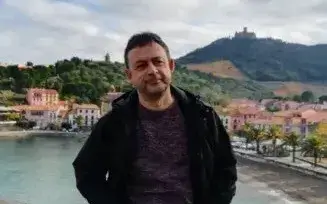The lack of public transport, geographic isolation and the loss of inhabitants causes many organizations being discriminated in obtaining public resources.
Rural entities must make efforts to deal with the territorial difficulties that affect their daily life. Most of them are located in places where 700 inhabitants are not exceeded and cannot reached by public transport.
These geographic factors, which causes territorial isolation, also prevent rural entities from being able to work in a more cohesive network.
This is the case of the Talma association, a social entity located in the municipality of Juneda, a town of about 3,400 inhabitants of the region of Les Garrigues. This entity shrives to improve the quality of life of people who suffer from disability, mental disorder or who are at risk of exclusion.
Anna Vilalta, an entity responsible for communication, explains that Talma has a social area that offers services and support to these people. It also has a business area of employment, through the Special Employment Center, and labor insertion. This last objective is to change the reality of the area. "The idea is that these people have jobs in ordinary businesses to achieve full job placement, but the reality of the region is completely different," says Vilalta.
In addition, the region has no business foundation, and this makes it difficult to achieve this goal. Only a few companies in the region, nevertheless, they are either small or self-employed. Therefore, they are not predisposed to accommodate insertion programs.
"The issue of corporate social responsibility is not practiced because it is not introduced, there is no sensitivity," says Vilalta. However, he adds: "We do not take it as a negative aspect but as an opportunity to work because we have not seen the possibilities of working together".
In addition, in these areas, the agricultural sector predominates, an economic area that requires a very specific and specialized training which makes it harder to promote employment. In urban areas, it is easier to manage the insertion because the services sector requires training that is more affordable for certain groups.
Excluding public subsidies
This data is corroborated by Mariona Seró, social worker of Talma and charged with managing the economic resources of the entity. "It is very difficult to establish economic agreements with companies in the area and the public subsidies of the Generalist are well thought out for the urban centers. It is therefore impossible to meet the requirements demanded by the Administration, "says Seró.
For example, says the social worker himself, there are subsidies that demand that the project affecting populations of more than 30,000 or 100,000 inhabitants. "We are not even arrived at Les Garrigues when we are automatically excluded from these requirements."
Another difficulty is the justification of public transport. "In an area such as ours, we travel by car or by taxi. If we do not finance the transport, there are people who cannot access the programs, "says Seró.
The region of Les Garrigues accounts a total of just over 19,000 inhabitants. With an aging population and a territory with communication problems, the entity cannot reach everyone. These facts hinder the autonomy of the users when having a "normalized" life and it becomes more difficult to overcome the stigma towards certain groups.
Cooperativa l'Olivera
In a similar situation is Olivera, a cooperative of social integration that incorporates people with difficulties that participate actively throughout the process of production of wines and oils. It is located in Vallbona de les Monges, a town of 154 inhabitants of the Urgell region.
Gloria Sala, responsible for communication of the cooperative, corroborates the rest of the statements. "It is more difficult to find a profile that is willing to live in a rural environment that offers few opportunities and difficulties in transportation and leisure. Not only of professional workers but also the users, "emphasized by Sala. Regarding the geographical situation, the responsible party reflects to what extent the cooperative provides a place of life chosen by the users themselves.
And for Olivera, the issue of transport is also a problem. According to the responsible person, the costs are very high, and the entity cannot be dedicated to the export because it has a small capacity and cannot grow.
Olivera was born in 1974 as a social project but it is not until 1989 that it produces the first wine to create a productive project at the service of a social project. Both this cooperative and Talma, are part of the Allem Federation. A group of social entities that provide support services for people with disabilities in the Comarques de Lleida.
Making network
Each territory has an entity. These organizations, although relatively close to each other, are dispersed. "The fact that there is Allem forces us to work more in the network to take advantage of the resources," emphasizes Vilalta. He adds: "It's good that someone reminds us that we work for the same purpose."
The coordinator of the Federation, Assumpta Fortuny, says that thanks to Allem, the entities have this point of connection that they would not have if the grouping did not exist. "We are the singing voice of the territory and we know very well the special idiosyncrasies that have the entities of the rural area", emphasizes Fortuny.








Add new comment